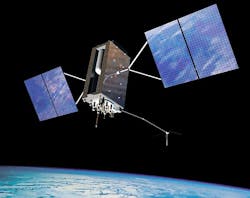DARPA takes another look at precise positioning without GPS in upcoming STOIC program
Officials of the Defense Advanced Research Projects Agency (DARPA) will outline the Spatial, Temporal and Orientation Information in Contested Environments (STOIC) for industry attendees on 12 June 2014 at the DARPA Conference Center, 675 North Randolf St., in Arlington, Va.
The STOIC program will seek to develop PNT systems that provide GPS-independent PNT with GPS-level timing and positioning performance. To do this, experts must combine long-range reference signals; ultra-stable tactical clocks; and multifunctional systems that share PNT information among users.
The goal of the DARPA STOIC program is to provide warfighters with GPS-like positioning, navigation, and timing capabilities in contested environments where GPS performance is degraded or unavailable due to electronic jamming, electro-magnetic pulse weapons, or terrain masking.
Related: How to maintain reliable military navigation capability without GPS
DARPA experts are pursuing other programs to achieve precise navigation and positioning information without using the GPS system, which is widely expected to be unreliable on future battlefields. Among the other DARPA GPS-independent programs is the All Source Positioning and Navigation (ASPN) program.
Companies interested in attending the STOIC briefings should register online no later than 9 June 2014 at https://safe.sysplan.com/confsys/stoic. Attendance is free, but limited to the first 100 registrants.
Related: Northrop Grumman joins DARPA sensor-fusion program to reduce military reliance on GPS
Afterward the formal briefings, those attending may meet individually with DARPA's Lin Haas. Email requests for individual meetings to [email protected]. Email questions or concerns to [email protected].
More information is online at https://www.fbo.gov/spg/ODA/DARPA/CMO/DARPA-SN-14-38/listing.html.

